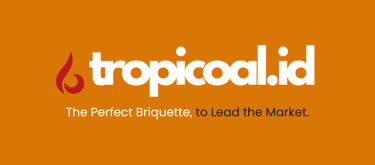Demystifying International Shipping: A Guide for First-Time Charcoal Importers
A guide for first-time charcoal importers on navigating international shipping. Learn about Incoterms (FOB, CIF), container options, and documentation to ensure a smooth process.
HOOKAH/SHIHABBQ
Tropicoal Team
7/21/20252 min read


For many first-time importers, the product itself is the easy part. The real challenge lies in navigating the complex world of international shipping. Understanding the logistics is key to ensuring your charcoal briquettes arrive on time, on budget, and without any legal headaches. This guide will demystify the essential aspects of shipping for you.
Understanding Key Shipping Terms (Incoterms) Incoterms are universal trade terms that define the responsibilities of the seller (exporter) and the buyer (importer). The two most common terms you will encounter are:
FOB (Free On Board): This means the seller's responsibility ends once the goods are loaded onto the shipping vessel at the designated port in the country of origin (e.g., Port of Jakarta, Indonesia). From that point on, the importer is responsible for the main sea freight costs, insurance, and all logistics in the destination country. This option gives you more control over your shipping costs and choice of freight forwarder.
CIF (Cost, Insurance, and Freight): With CIF, the seller is responsible for the cost of the goods, the insurance, and all freight charges to get the product to the destination port you name (e.g., Port of Los Angeles, USA). While this seems simpler, it often gives you less control and can sometimes be more expensive than arranging your own shipping.
Choosing Your Container Your charcoal will be shipped in standard sea containers. The common sizes are:
20-Foot Container: Typically holds approximately 18-20 metric tons of coconut charcoal briquettes.
40-Foot Container: Holds approximately 25-27 metric tons.
Your choice depends on your order volume and warehouse capacity. It's often more cost-effective per ton to ship a full 40-foot container if you have the demand.
Essential Documentation A smooth customs clearance process depends on having your paperwork in order. Your Indonesian supplier should provide you with the following key documents:
Bill of Lading (B/L): The single most important document. It acts as a receipt, a contract, and a document of title for the goods.
Commercial Invoice: A detailed invoice of the goods being sold.
Packing List: Details the contents, weight, and dimensions of each package within the shipment.
Certificate of Origin (COO): Certifies that the goods were produced in Indonesia. This can be important for clearing customs and for tariff purposes.
Material Safety Data Sheet (MSDS): A crucial document for charcoal, detailing its properties and confirming it is safe for transport (non-hazardous).
Conclusion: Your Supplier is Your Partner International shipping can seem daunting, but it doesn't have to be. A professional and experienced supplier will act as your partner, guiding you through the process, ensuring all documentation is correct, and communicating clearly at every step. They understand that their job isn't done until your product is safely on its way.
At Tropicoal.id, we pride ourselves on providing not only premium briquettes but also a seamless and transparent shipping experience for our partners worldwide. Contact us to discuss how we can simplify your import process.


